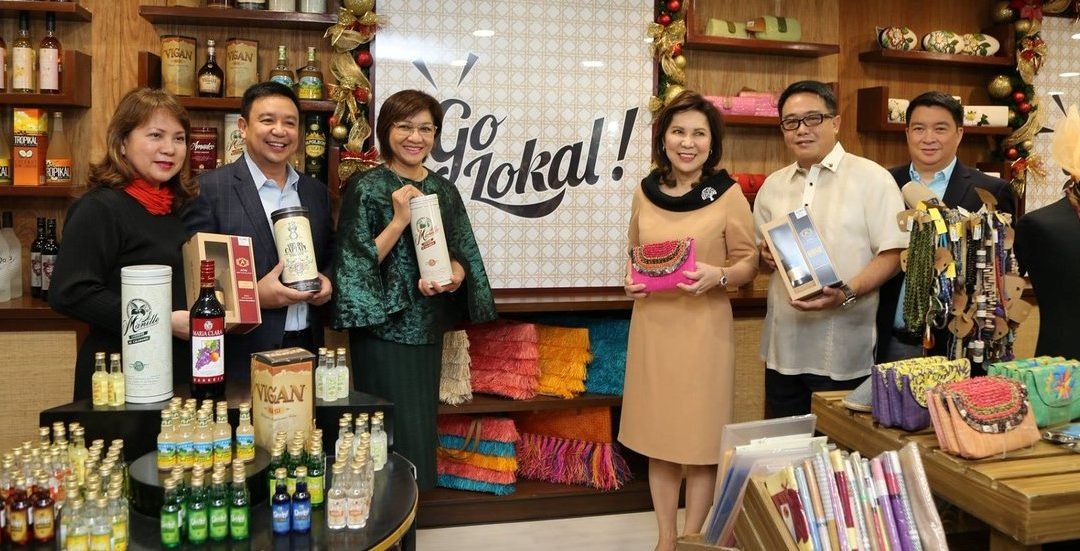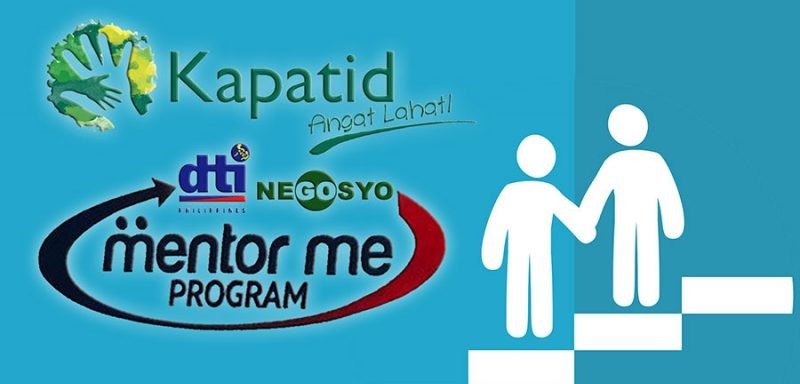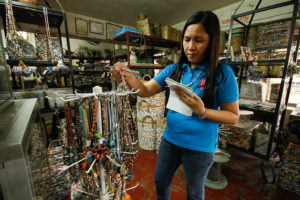
by rossanahead | Apr 5, 2017 | Business Tips, Startup Guide
Startup enablement programs to help speed up growth and learning for Philippine startups and entrepreneurs have been launched by QBO Innovation Hub.
“We are excited to create success stories that will inspire Filipinos to start their own companies instead of pursuing opportunities overseas,” said QBO and IdeaSpace president Butch Meily.
QBO is an established partnership between the public and private sector including the Department of Trade and Industry (DTI), Department of Science and Technology (DOST), IdeaSpace Foundation, and J.P. Morgan.
It will start offering programs and services to startups including access to QBO’s networking events such as classes, workshops, mentorship, feedback sessions, and use of its co-working space.
Available services include professional consultations on legal and accounting matters; marketing and design; corporate and government partner resources referrals; assistance on incorporation, business registration, and intellectual property filing; and investors and potential partners pitching.
“DTI hopes that with our partners from industry, academe, and other government agencies such as DOST and DICT, our initiatives will help advance the development of our local startup ecosystem and increase the number of high-growth oriented enterprises that will bring the Philippine brand in a global scale,” said DTI Trade and Investments Promotions Group Undersecretary Nora K. Terrado.
Through QBO, startups will also have an opportunity to join J.P. Morgan’s Incubation Program, a stage agnostic module (involving the review of company business plans) that will be available to select and high-potential startups all year round. It initially plans to enroll 15 startups by the end of 2017.
“As one of the world’s leading financial institutions, J.P. Morgan celebrates new ideas and we are committed to supporting entrepreneurs in the country, especially those with underserved backgrounds,” said Roberto L. Panlilio, Senior Country Officer, J.P. Morgan Philippines.
“Engaging with Micro, Small and Medium Enterprises (MSMEs) at their early stages is critical and we are excited about the tremendous opportunities they will bring to developing sectors and generating jobs, which are both vital in promoting prosperous and thriving communities,” he added.
To avail of these services, startups need to have an initial interview with the QBO team and undergo initial assessment. Through this, a customized plan will be designed to match with the resources needed by the startup.
QBO was launched in 2016 with DTI Secretary Ramon Lopez and PLDT Group chair Manny V. Pangilinan. It aims to link innovators, explorers, investors, academic institutions, startup mentors, funders, and enablers as well as a broad spectrum of partners and stakeholders from both public and private sectors to convene in constructive interaction.
“The Philippine startup ecosystem is growing incredibly quickly, fueled by a young population engaged in the internet and digital, and more importantly, by entrepreneurs that demonstrate incredible determination and commitment,” said DOST Undersecretary for Research and Development Dr. Rowena Cristina L. Guevara.
“By continuing to develop ideas into innovative products and technologies, startups can evolve to become great companies that positively impact the future of the Philippines,” she continued.
QBO is the first innovation hub in the country, pioneering the first public-private effort to establish an innovation ecosystem in the Philippines following the success stories of Silicon Valley in the U.S., Singapore’s startup hub BLK 71, and the Malaysian Global Innovation and Creativity Centre in Malaysia.

by rossanahead | Mar 27, 2017 | Business Tips, Existing Business, Startup Guide
The Department of Trade and Industry (DTI) has launched its first Go Lokal! store in Robinsons mall and plans to open a similar outlet in SM.
On March 24, DTI opened in Robinsons Place Manila its initial Go Lokal! store, a public-private collaboration between the agency and local retailer partners.
Go Lokal! is a design-based concept store and market platform showcasing modern and indigenous quality products crafted, designed, and created by Filipino micro, small, and medium enterprises (MSMEs).
The market platform is set to revolutionize the way hard-to-find and artisanal Filipino products are sold in the local market by bringing together a specially curated lineup that includes food products, apparel, accessories, home décor, gadgets, and gift items.
Trade Secretary Ramon Lopez said that aside from providing market access for MSME products, Go Lokal! is a venue for new entrepreneurs to test the marketability of their products without fear of losing on rental and commercial costs because their Go Lokal! experience is free of charge.
“DTI is excited to open its first mainstream Go Lokal! store with Robinsons Department Store as its dynamic partner in this effort of maximizing market access and providing exposure to our MSMEs,” said Lopez. “We look forward to opening more outlets in their malls and department stores across the country.”
“Ultimately, it’s all about accessibility and opportunity for MSMEs, both of which you need to be successful in retail. Go Lokal! is one way for DTI and Robinsons Department Store to give assurance to these business owners that they have support from both the government and the private sector so they may profit from ventures that they are passionate about,” Robinsons Department Store president and COO Robina Gokongwei-Pe said.
Go Lokal! outlet at SM Makati
Also on March 24, DTI signed an agreement with Kultura, the country’s largest retailer of homegrown products, to open a Go Lokal! store in SM Makati.
Kultura’s Go Lokal! store opens in April at the second level of SM Makati and will run throughout the year.
“Kultura and Go Lokal! are complementary avenues to help our local MSMEs gain retail foothold in the Philippine domestic market. We are pleased to open a Go Lokal! together with Kultura as a testament of our collective thrust of inclusive growth and development of our MSMEs,” said Lopez.
“Kultura has become a showcase of local artistry and craftsmanship and furthers its advocacy by partnering with the DTI for its Go Lokal Project, providing a venue for the distribution and promotion of products sourced from MSMEs,” said Ivy Frances Yap, Kultura’s senior vice president for operations.
Featured Photo from Philippine Retailers Association

by rossanahead | Mar 24, 2017 | Business Tips, Existing Business, Startup Guide, Trainers
In line with the Philippine administration’s agenda of accelerating the growth of micro, small, and medium enterprises (MSMEs), Trade Secretary Ramon Lopez has announced the nationwide schedule of the Kapatid Mentor ME for 2017.
The Kapatid Mentor ME Program aims to assist MSMEs scale up and sustain their businesses through weekly coaching and mentoring by business owners and practitioners on different functional areas of entrepreneurship. It is a joint program of the Department of Trade and Industry (DTI) and the Philippine Center for Entrepreneurship-Go Negosyo.
“With our strong desire to help the country’s MSMEs and provide jobs to Filipinos, DTI and PCE-Go Negosyo conceptualized the Kapatid Mentor ME Program to serve as the entrepreneurs’ guide to a globally competitive enterprise,” Lopez said.
The trade chief, as chair of the ASEAN Economic Ministers’ Meeting and Related Meetings, continues to champion the MSME development thrust at the meeting with his fellow ASEAN economic leaders, bringing the national priority to the regional agenda.
The Kapatid Mentor ME sessions kicked off March 8, 2017 in Catbalogan, Samar and will run in 89 areas in 16 regions throughout the country until the end of the year.
The 11-week program will have weekly modules such as Marketing, Financial Management, Human Resource Management, and Operations Management, among others. On the 11th week, the mentee is required to present his or her business improvement plan, incorporating the learning from the lectures and mentoring sessions.
To qualify as a mentee, the entrepreneur should be a business owner or manager of an enterprise with an asset of P3 million and below, operating for at least one year.
“To help address poverty, we are consistently determined to produce more entrepreneurs, as well as generate more jobs for Filipinos,” Lopez said.
To get more information about the Kapatid Project and view the Kapatid Mentor ME Program Schedule for 2017, click here.
You may also visit the Negosyo Center nearest you for training programs.
Featured Photo from Dumaguete Info

by rossanahead | Mar 20, 2017 | Business Tips, Startup Guide
 Who run the (business) world?
Who run the (business) world?
Girls, as a matter of fact, according to a recent Facebook study, if only they are given the right entrepreneurial opportunities—which could translate to almost four million new jobs in the country.
Launched in time for International Women’s Day on March 8, the study, conducted by Development Economics and YouGov on behalf of Facebook, revealed that almost nine of 10 Filipino women expressed their desire to put up their own businesses.
Read more at Business Inquirer.
Featured Photo from Freepik

by rossanahead | Mar 13, 2017 | Startup Guide
 More women should be encouraged and supported to engage and succeed in global trade, said the International Trade Centre (ITC) as it marked International Women’s Day on March 8.
More women should be encouraged and supported to engage and succeed in global trade, said the International Trade Centre (ITC) as it marked International Women’s Day on March 8.
To unlock women’s economic potential, ITC underlines seven ways governments, institutions, and the private sector can empower women all over the world, including women in the Philippines.
l. Champion quality data. Information on male and female entrepreneurs should be separated so that the progress of women can be adequately tracked.
2. Enact fair policies. Pass fair policies that will allow more women to join international trade.
3. Secure government contracts. Give more procurement contracts to women. The ITC says this is because companies represented by women are not only more efficient, but the profits from those companies mostly go to the whole family.
4. Strike business deals. The corporate sector is always looking for new products and new solutions. Encourage women to take this opportunity to promote their products and services, especially those that bring cost-effective, more-timely solutions.
5. Enable market access. Guide and assist women entrepreneurs to develop the business skills they need to access new markets.
6. Unlock financial services. Because women are newcomers to the world of business, they must be provided equal access to financial resources so they can put their ideas and creativity to work.
7. Grant ownership rights. Giving women ownership rights to their businesses and properties gives them a voice to influence policies as well as the power to create jobs.
ITC is the joint agency of the World Trade Organization and the United Nations that supports the entry of small and medium enterprises in international trade. – RCA
Photo: ADB
Featured Photo by Christina @ wocintechchat.com on Unsplash





 Who run the (business) world?
Who run the (business) world?
 More women should be encouraged and supported to engage and succeed in global trade, said the International Trade Centre (ITC) as it marked International Women’s Day on March 8.
More women should be encouraged and supported to engage and succeed in global trade, said the International Trade Centre (ITC) as it marked International Women’s Day on March 8.